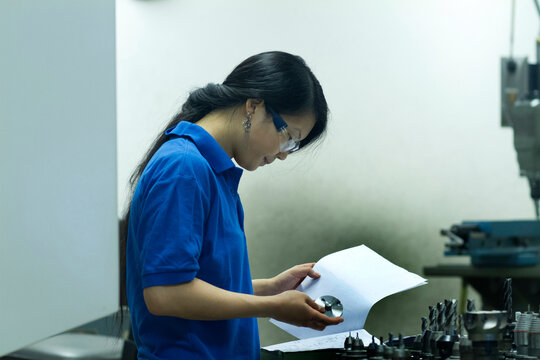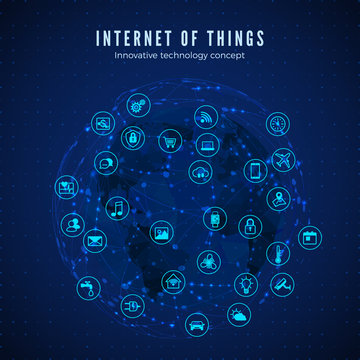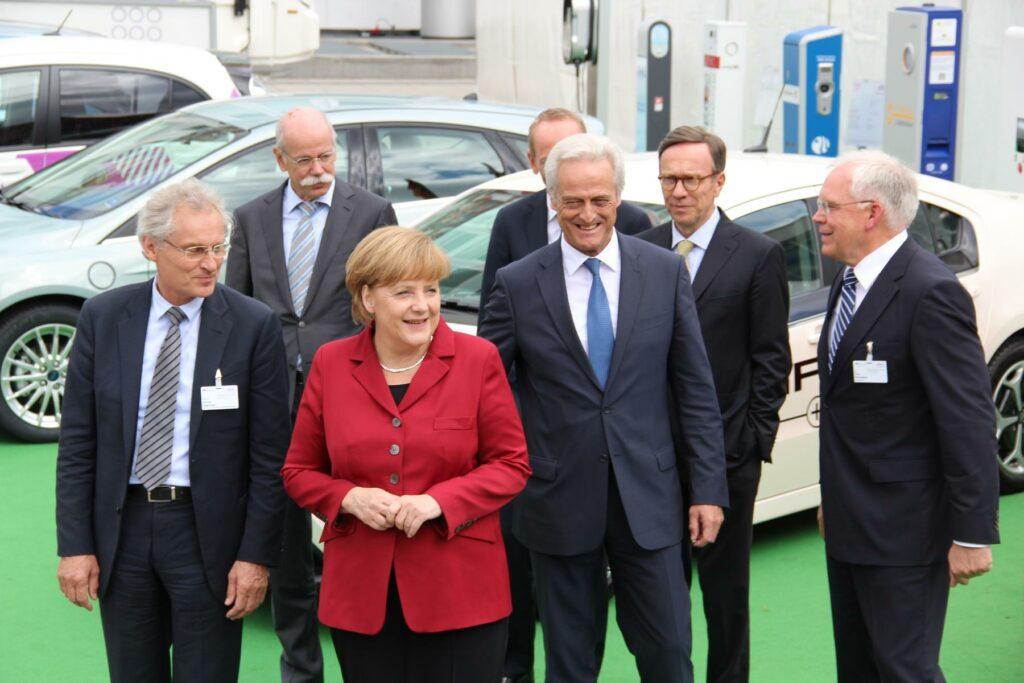The automotive industry is constantly evolving, with new technologies and trends emerging each year. As we approach 2023, the industry is poised for even more significant changes that will shape the future of transportation. If you’re a player in the automotive industry, it’s essential to stay ahead of these upcoming trends to remain competitive and relevant in the market. In this blog post, we’ll explore some of the most critical trends that will shape the industry in 2023 and beyond, giving you insights into how you can adapt your strategies and stay ahead of the curve. So buckle up and get ready to master the automotive industry trends of 2023 and beyond!

Introduction: The Evolution of the Automotive Industry
The automotive industry has come a long way since the first car rolled off the production line. Over the years, new technologies and changing market conditions have driven significant changes in the sector. Today, automotive manufacturers are grappling with a range of challenges, from increasing environmental concerns to shifting consumer preferences and disruptive new players. However, these challenges also present opportunities for companies that can stay ahead of industry trends.
Looking back at recent history, we can see how quickly things have evolved in this sector. From early combustion engines to hybrid powertrains and electric vehicles (EVs), automotive technology has advanced rapidly. In addition to powertrain innovations, connectivity features such as infotainment systems and autonomous driving capabilities are changing how we interact with our cars.
This article will explore some of the key automotive industry trends that will shape 2023 and beyond. Whether you’re an automaker or supplier looking to keep pace with evolving customer demands or simply interested in developments within this exciting sector, read on for insights into what lies ahead for one of today’s most dynamic industries.

The Top 5 Automotive Industry Trends to Watch in 2023 and Beyond
The automotive industry is evolving at a rapid pace, with technological advancements driving major changes in the sector. Here are the top 5 automotive industry trends to watch in 2023 and beyond:
-
*Electrification: The shift towards electric vehicles (EVs) is gaining momentum, with major automakers* investing heavily in EV technology. By 2023, it’s expected that EVs will make up a significant portion of new car sales.
-
*Autonomous Driving*: Self-driving cars are no longer a thing of the future – they’re already on our roads. In the coming years, we can expect to see more autonomous features added to cars, leading to fully autonomous vehicles becoming a reality.
-
Connectivity: Cars are becoming more connected than ever before, with features like infotainment systems and advanced driver assistance systems (ADAS) becoming standard in many new models.
-
Sustainability: Eco-friendly vehicles are gaining popularity as consumers become more environmentally conscious. This trend is expected to continue as governments around the world introduce stricter emissions regulations.
-
Changing Consumer Preferences: Customers are looking for cars that offer more than just basic transportation – they want vehicles that are comfortable, convenient, and safe. As a result, automakers are focusing on developing cars that meet these changing consumer needs.
Electrification: The Future of Automotive Powertrains
Electrification is arguably the most transformative trend currently affecting the automotive industry. Over the next few years, more and more car manufacturers are expected to invest in electric vehicles (EVs), especially as governments around the world set ambitious targets for reducing carbon emissions. By 2023, it’s estimated that EVs will make up over 10% of global passenger vehicle sales.
One significant factor driving the growth of electrification is battery technology improvement. Battery prices continue to fall, making EVs more affordable for consumers while also increasing their range and performance capabilities. In addition, charging infrastructure is rapidly expanding, with new public fast-charging stations being built every day.
With these developments in mind, it’s no surprise that many major car manufacturers have already announced plans to phase out gas-powered cars completely over the next few decades. As a result, those who want to stay ahead of this seismic shift in automotive technology need to start planning now or risk getting left behind by competitors who embraced an electric future early on.

Autonomous Driving: The Next Frontier in Automotive Technology
Progressive Steps Towards Full Autonomy: A Look at Current Developments
Autonomous driving is no longer a futuristic concept, but a reality that is gradually taking shape. With the advancements in technology, we are witnessing progressive steps towards full autonomy. Companies like Tesla, Waymo, and Uber are leading the way in developing self-driving cars that can navigate roads without human intervention. The key phrases to keep in mind are “autonomous driving” and “self-driving cars”. These vehicles use a combination of sensors, cameras, and machine learning algorithms to detect obstacles and make decisions based on real-time data. While there are still challenges to overcome, such as regulatory hurdles and safety concerns, the future of autonomous driving looks promising.
Challenges and Opportunities in the Autonomous Driving Industry
The autonomous driving industry presents both challenges and opportunities for the automotive industry. One of the biggest challenges is ensuring safety and reliability in self-driving cars, which requires extensive testing and development. However, there are numerous opportunities for companies that successfully navigate this space, including increased efficiency on the roads, reduced congestion, and improved mobility options for those who cannot drive themselves. Additionally, new business models such as ride-sharing services could be revolutionized by autonomous vehicles. As advancements in artificial intelligence and data analytics continue to shape this sector, it will be critical for automakers to stay ahead of the curve to remain competitive in a rapidly evolving landscape.
The Impact of Autonomous Vehicles on Society and Infrastructure
Autonomous vehicles have the potential to revolutionize society and infrastructure in a number of ways. One key benefit is the potential to reduce traffic congestion and accidents, as self-driving cars can communicate with each other and optimize routes. Additionally, autonomous vehicles could provide increased mobility for those who are unable to drive, such as the elderly or disabled. However, there are also concerns about job displacement for drivers and the need for updated infrastructure to support autonomous vehicles. Overall, the impact of autonomous vehicles on society and infrastructure will be significant and will require careful consideration as we move towards a more automated future in the automotive industry.
Preparing for the Future: Strategies for Automotive Brands to Thrive in an Autonomous World
As autonomous driving technology continues to advance, automotive brands must prepare for a future where self-driving cars are the norm. To thrive in this new landscape, brands must focus on innovative solutions that integrate autonomous technology seamlessly into their vehicles. This means investing in research and development to create reliable and safe autonomous systems that meet consumer demands. Additionally, brands must prioritize education and awareness campaigns to help consumers understand the benefits of autonomous driving and alleviate any concerns they may have. By taking these steps, automotive brands can position themselves as leaders in the industry and stay ahead of the curve in this rapidly evolving market.

Connectivity: How Cars are Becoming More Connected Than Ever Before
Connectivity is transforming the automotive industry, with cars becoming more connected than ever before. From infotainment systems to advanced driver assistance features, connectivity has become an essential aspect of modern vehicles. With the rise of Internet of Things (IoT) technology, cars are being integrated into a broader network of devices and services.
One key trend in this space is the use of data analytics to improve car performance and efficiency. By collecting data from various sensors within the vehicle, automakers can identify areas for improvement and deliver a better driving experience.
Another important development is the emergence of over-the-air updates for in-car software systems. This allows automakers to remotely update or fix issues with a vehicle’s software without requiring owners to visit a dealership.
As connectivity continues to evolve, automakers will need to prioritize cybersecurity measures that protect drivers’ personal information while still offering all the benefits that come with connected vehicles.
Sustainability: The Growing Importance of Eco-Friendly Vehicles
As the world becomes more environmentally conscious, eco-friendly vehicles are becoming increasingly important in the automotive industry. In fact, many consumers now prioritize fuel efficiency and lower emissions when shopping for a new car. To meet this demand, automakers are investing heavily in electric and hybrid powertrains as well as alternative fuels such as hydrogen.
But sustainability goes beyond just reducing emissions. Automakers are also exploring ways to make their production processes more eco-friendly and reduce waste. This includes using recycled materials, implementing sustainable sourcing practices for raw materials, and developing circular economy models.
In addition to meeting consumer demand for sustainability, going green can also be a competitive advantage for automakers looking to differentiate themselves from their competitors. By embracing sustainability and incorporating it into all aspects of their business model, automakers can attract customers who share similar values while also benefiting the planet.

Changing Consumer Preferences: What Customers Want from their Cars in 2023 and Beyond
Electrification: The Driving Force Behind Changing Customer Preferences
As the automotive industry shifts towards electrification and sustainable transportation, changing consumer preferences are becoming increasingly evident. Customers are now looking for cars that are not only eco-friendly but also offer advanced features and technologies. Electric vehicles (EVs) are becoming more popular as they offer a cleaner and more efficient mode of transportation. With advancements in battery technology, EVs are now able to offer longer ranges and faster charging times. As a result, customers are demanding more electric options from automakers. In addition, customers want cars that offer advanced safety features, such as autonomous driving capabilities and connected technologies that enhance the driving experience.
Connectivity and Tech Features: A Must-Have for Modern Cars
As we move towards 2023 and beyond, connectivity and tech features are becoming increasingly important to customers when it comes to their cars. Modern drivers expect their vehicles to be equipped with the latest technology, from advanced infotainment systems to driver assistance features. The rise of smartphones and other mobile devices has also led to a demand for seamless integration between these devices and the car’s onboard systems. As a result, automakers are investing heavily in developing connected car technologies that can provide drivers with real-time information, entertainment, and safety features. In the coming years, we can expect to see even more advanced connectivity options in cars as consumers continue to prioritize this aspect of their driving experience.
Sustainability and Eco-Friendliness: The Rise of Green Mobility Solutions
Consumers in 2023 and beyond are increasingly concerned about environmental sustainability, leading to a rise in demand for eco-friendly vehicles. Key phrases such as green mobility solutions and sustainability have become major selling points for automakers looking to attract environmentally conscious customers. Hybrid and electric vehicles are growing in popularity, with more options becoming available from both traditional manufacturers and new players entering the market. Consumers also value sustainable materials and production methods, driving automotive companies to embrace eco-friendliness throughout their entire supply chain. In response to this trend, innovative companies are developing new green technologies that will revolutionize the industry even further.
Personalization and Customization: How Car Manufacturers are Adapting to Individual Needs
One of the key automotive industry trends for 2023 and beyond is personalization and customization. Car manufacturers are adapting to individual needs by offering more options for customers to create a unique driving experience. From custom paint jobs to personalized interiors, cars are becoming an extension of their owners’ personalities. In addition, technology advancements allow for even more customization options, such as adjustable driving modes and infotainment settings that can be configured based on driver preferences. As customers become increasingly interested in expressing their individuality through their vehicles, expect car manufacturers to continue innovating in this area.
Disruptive Technologies: How New Players are Shaking Up the Automotive Industry
Disruptive technologies are transforming the automotive industry at an unprecedented rate. From electric vehicles to ride-sharing platforms, traditional players are being forced to adapt or risk being left behind. One of the most significant trends in this area is the rise of mobility-as-a-service (MaaS), which allows consumers to access transportation on a pay-per-use basis while reducing car ownership and reliance on personal vehicles. Another key phrase is blockchain, which has the potential to revolutionize supply chain management by enabling secure, transparent transactions between manufacturers, suppliers, and customers. As these disruptive technologies continue to gain momentum, automakers will need to be agile and innovative in order to stay competitive in a rapidly evolving market.

Challenges and Opportunities: Navigating the Complex Landscape of the Automotive Industry Trends
The automotive industry is facing numerous challenges and opportunities as it navigates the complex landscape of the future. One of the biggest challenges is the shift towards electrification, which requires significant investment in research and development, as well as infrastructure. Another challenge is meeting changing consumer preferences, which are increasingly focused on sustainability, connectivity, and autonomous driving. At the same time, there are also significant opportunities for companies that can successfully adapt to these trends. For example, companies that invest in autonomous driving technology or eco-friendly vehicles could gain a competitive advantage in the market. Additionally, new players are entering the industry with disruptive technologies that could reshape the industry in unexpected ways. To succeed in this environment, companies must be agile and innovative, constantly adapting to new trends and technologies while staying true to their core values and mission.

Conclusion: Mastering the Future of the Automotive Industry
As the automotive industry continues to evolve, it is important for companies to stay ahead of the curve and master the trends that will shape the future. From electrification and autonomous driving to connectivity and sustainability, there are many opportunities and challenges facing the industry in 2023 and beyond.
To succeed in this rapidly changing landscape, companies must be willing to embrace new technologies and adapt to changing consumer preferences. They must also be mindful of the growing importance of sustainability and eco-friendly vehicles.
At the same time, new players are entering the market and disrupting traditional business models. To stay competitive, companies must be agile and innovative, constantly seeking out new ways to improve their products and services.
By staying on top of these trends and embracing change, companies can position themselves for success in the years ahead. The future of the automotive industry is bright, but only for those who are willing to seize the opportunities that lie ahead.
In conclusion, the automotive industry is going through a transformative period that will redefine how we think about transportation in the years to come. The rise of electrification, autonomous driving, connectivity and sustainability are just a few examples of how technology is changing the game for car manufacturers worldwide. Changing consumer preferences and new competitors entering the market only add to this complex landscape.
As such, it’s more important than ever before that industry insiders stay up-to-date on all of these trends and understand what they mean for their businesses moving forward. By mastering these changes today, companies can position themselves for success tomorrow.
If you’re interested in learning more about navigating this rapidly evolving landscape or staying informed on other key developments in the world of automotive technology and innovation, be sure to check out our other articles here at Car Pro Blog!

